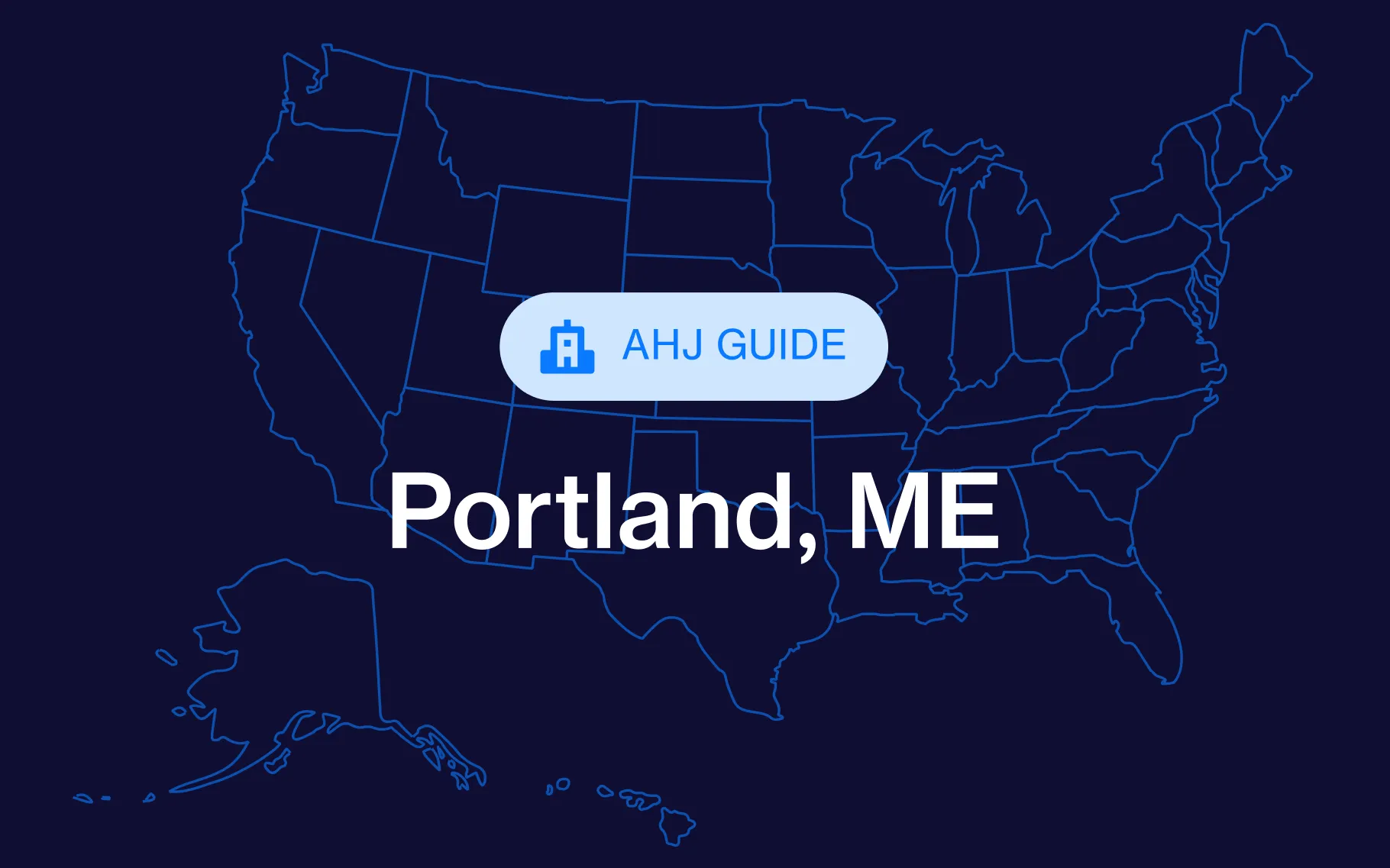Maine’s permitting system blends local control with state-level oversight, particularly around environmental protection, energy efficiency, and coastal development. While most towns and cities issue building permits directly, projects may also require approval from the Maine Uniform Building and Energy Code (MUBEC) office, the Maine Department of Environmental Protection (DEP), or the Maine State Fire Marshal’s Office, depending on scope and location.
Contractors working in Maine should be especially mindful of the state’s coastal development rules, shoreland zoning, and energy efficiency standards. Rural areas may have less permitting oversight, but in urban centers like Portland, Bangor, and Augusta, the requirements are more extensive.
When do you need a building permit in Maine?
In Maine, most significant construction activities require a permit, including:
- New residential or commercial buildings
- Additions, renovations, and major alterations
- Structural work (load-bearing walls, decks, roofs)
- Electrical, plumbing, and HVAC installations
- Demolition of structures
- Energy system installations (solar, geothermal, EV chargers, biomass heating)
- Accessory structures (garages, sheds, decks) above certain size thresholds
Exemptions may include:
- Cosmetic updates like painting, flooring, and cabinetry
- Small storage sheds or agricultural buildings under local square footage limits
- Temporary tents or structures for events (below certain size/time limits)
Maine building permit requirements
A typical building permit application in Maine requires:
- Completed permit application form (local jurisdiction)
- Site plan (showing property boundaries, setbacks, driveways, utilities)
- Construction drawings (stamped by an architect/engineer for larger projects)
- Contractor registration/licensing details
- Proof of compliance with MUBEC energy standards
- Estimated project cost
Additional approvals may be required for:
- Shoreland zoning permits (within 250 feet of lakes, rivers, wetlands, or coastal waters)
- DEP permits for large-scale site alterations or wastewater systems
- Historic preservation approvals in designated districts
- Fire Marshal review for commercial, public, and multifamily (3+ units) projects
Who issues building permits in Maine?
Building permits in Maine are issued at the municipal level, usually through the local Code Enforcement Officer (CEO) or building department.
Examples include:
- Portland Permitting & Inspections
- Bangor Code Enforcement
- Lewiston Planning & Code Enforcement
- Augusta Building Department
The Maine State Fire Marshal’s Office reviews commercial, industrial, and multifamily projects for fire and life safety compliance. Additionally, the Maine DEP issues permits for projects affecting shoreland, wetlands, or natural resources.
Maine building permit costs
Permit fees vary by jurisdiction, project size, and valuation.
Typical building permit fee ranges include:
- Residential new construction: $150-$800+ depending on size and municipality
- Commercial new construction: $1,000-$5,000+ with additional plan review fees
- Trade permits (electrical, plumbing, HVAC): $50-$200 each
- Flat-rate permits: $30-$150 for small projects like fences, sheds, or mechanical replacements
Unique considerations when permitting in Maine
Shoreland zoning
Strict regulations apply to building near lakes, rivers, wetlands, and the coast. Expect additional review and possible DEP involvement.
Energy efficiency compliance
MUBEC energy code standards are enforced for both residential and commercial construction.
Coastal and environmental permitting
Projects near tidal areas, dunes, or wetlands may require additional DEP permits.
Fire Marshal review
Commercial, public-use, and multifamily projects require approval from the State Fire Marshal’s Office.
Historic preservation
Cities like Portland, Bath, and Bangor have historic districts requiring design review.
How to get a building permit in Maine
The building permit process generally includes the following steps:
- Determine jurisdiction
Identify whether the project requires only local permits, or also state-level Fire Marshal or DEP approvals. - Review zoning rules
Check setbacks, use restrictions, and environmental overlays in the project’s town or city. - Prepare documentation
Submit site plans, construction drawings, and energy code compliance forms. - Submit application
File with the local Code Enforcement Officer (CEO) or building department. - Plan review
Conducted by building officials, zoning administrators, and when required, the Fire Marshal or DEP. - Pay fees
Based on project valuation, square footage, or trade-specific categories. - Receive permit
Post visibly on-site during construction.
- Schedule inspections
Foundation, framing, plumbing, electrical, mechanical, and final inspections as required.






